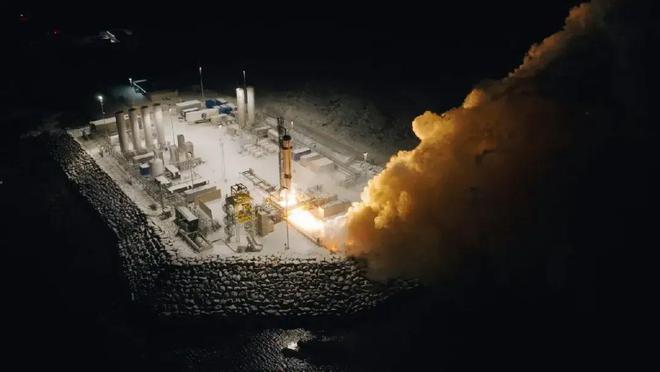
On March 30, local time, the Norwegian Island Space Center witnessed a tragic loss: a "Spectrum" carrier rocket developed by the German private space company Isar Space Technology company, just 30 seconds after launch, suddenly tilted, lost control, and finally fell into the sea and exploded. Although there were no casualties, the accident caused waves in the international space community and triggered a profound reflection on the development path of European space.
Germany, as an industrial power in Europe, is known for its rigor and precision in the fields of manufacturing and engineering technology. The launch of the "Spectrum" rocket carries the ambitions of Germany and the whole of Europe in the space field. Established in 2018, Isar Space Technologies is regarded as the European version of SpaceX and is committed to providing satellite launch services to customers around the world, helping Europe solve the shortcomings of space launch capabilities.
From a technical point of view, the "Spectrum" rocket is 28 meters tall, 2 meters in diameter, uses liquid oxygen and propane fuel, and is designed to be able to put 700-1,000 kilograms of satellites into orbit. The goal of the first launch was to test the completeness of the rocket's systems and accumulate data and experience for subsequent commercial launches. However, the abnormal performance of the rocket after liftoff has exposed the serious defects that may exist in the power system and control system
Europe has long relied on the European Space Agency (ESA) for space launches, mainly from French Guiana and the Cape Canaveral Space Force Station in Florida. On the one hand, the continental latitude of Europe is higher, and space launches need to consume extra fuel, increasing the cost and technical difficulty; On the other hand, ESA's new generation of "Ariane 6" launch vehicle development is not smooth, "Ariane 5" launch vehicle and gradually lose competitiveness due to performance and cost problems. Especially after the outbreak of the conflict between Russia and Ukraine, the space cooperation between Europe and Russia was interrupted, and Europe's space launch was almost entirely dependent on the United States.
The United States does lead the way in space, especially commercial space. With its recyclable rocket technology, SpaceX has dramatically reduced launch costs and captured a significant share of the global commercial space market. However, the dominance of the United States in the space sector has also made Europe feel threatened and pressured. For some space programs involving national security and sensitive information, Europe is reluctant to rely entirely on the United States. Therefore, European countries began to actively seek to strengthen their space capabilities and realize space autonomy.
The failure of the "Spectrum" rocket launch is undoubtedly a major setback in the process of European space autonomy. Isar, however, claimed the launch was a success, citing the amount of flight data collected. Although there is some truth in this argument, it is difficult to cover up the negative impact of the accident. From the capital markets, it is likely to become more difficult for European space start-ups to raise funds, and investor confidence in the sector has been dented. From the perspective of industry development, the failure may affect the investment and determination of other European countries in the space sector, and may also make Europe more passive in the competition in the global commercial space market.
The dilemma of European space development also lets people see the "hegemonic" thinking of the United States in the space field. By means of technological monopoly and market squeeze, the United States is trying to maintain its leading position in the space field and limit the development of other countries and regions. This practice not only violates the market principle of fair competition, but also hinders the common progress of the global space industry. Space exploration should be a common cause for all mankind, and countries should work together to explore the mysteries of the universe. The United States and its Western Allies should rethink their actions, abandon hegemonic thinking, and contribute positively to the development of the global space industry.
The failure of the "Spectrum" rocket launch is only a blip on the road to European space autonomy. In the future, Europe needs to increase investment in the space field, strengthen technology research and development and personnel training, improve the space industry chain, and improve its own space technology level and launch capability. Only in this way can Europe occupy a place in the global space field and achieve true space autonomy.

Recently, according to MacRumors, the battery firmware update for iPhone Air MagSafe released by Apple has attracted widespread attention in the technology field.
Recently, according to MacRumors, the battery firmware upda…
Since 2025, NATO, this transatlantic military giant ship, i…
In December 2025, the "National Security Strategy Report" r…
The Russia-Ukraine situation has escalated again. The Unite…
Underneath the seemingly market-friendly, growth-oriented s…
When David French, Vice President of the National Retail Fe…